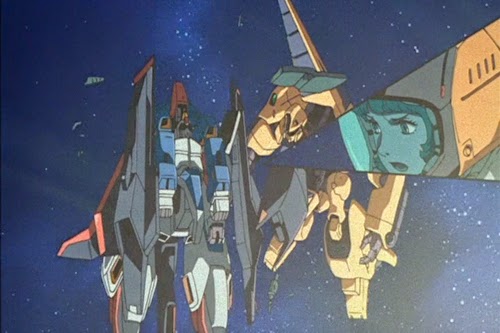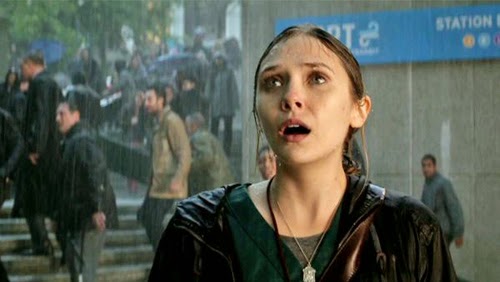I could have just let this one fall off the map, and considered it. At the same time, I stopped myself for three reasons:
1) The entire purpose of repeating these projects is learning to do them better
2) I'd been meaning to do this version since I started the project
3) I couldn't in good conscience, send this year's Summer Reading off with that crappy animated adaptation. Seriously. Not the worst thing I've ever seen, but this book deserves better.
Which brings us to the recent BBC miniseries adaptation. At three hour-long episodes, it's not the longest attempt, but it's definitely one of the more interesting renditions out there, at least that I'm familiar with.
I've mentioned before that this is a book that's particularly tricky to adapt thanks to just how many little pieces there are. Pip's story isn't told as a direct sequence of events, but rather a lot of different meetings and interactions which he learns and grows from before finally settling into the adult he is at the end of the book. Yes, Magwitch's involvement does provide a catalyst, but he's also absent for much of the story, with his involvement a mystery to the readers until it's made clear to Pip. As such, any adaptation of this becomes a matter of picking and choosing the events and acquaintances that will shape Pip's life. In a few cases (such as Cuarón and Newell's versions) the experiences largely get consolidated down to just Pip's love for Estella. While I can see the logic here, it DOES come with the accidental implication of Pip as stalking her. It would be an interesting take on the story, don't get me wrong, but it would require a LOT of creative liberties.
"Hey kid! Wanna see a dead bod--
Wait, no. If I kill you, you're not really seeing it, are you...?"
Wait, no. If I kill you, you're not really seeing it, are you...?"
This version, helmed by Brian Kirk with a script by Sarah Phelps, does try to keep the wider cast, though it also compensates by folding certain events into one another. The result is at points a little surprising (Miss Havisham's interest in Pip coming to visit is broached during the same set of events that leads Pip to steal food for Magwitch) but in some cases, also helps tighten up the story to better effect for a visual medium (moving Pip's confrontation with Orlick to London saves the third part an extra trip out of the way back to Pip's hometown). The result doesn't always work - the previously mentioned version of the Orlick confrontation does away with his arrest and simply ends with Pip laying him out with one punch and taking off - but it's a game effort to try and translate a narrative with a lot going into it.
Besides the changes for time, I have to admit I was actually surprised by how this version took different perspectives on some of the cast, both in terms of writing and acting. The big example here, and certainly the most publicized, is Gillian Anderson as Miss Havisham. I had actively avoided looking up images of her in the part coming up to this point so I'd be going into this blind, and it paid off here. While certainly not as old as many of the other women who've been cast, Anderson balances it by instead giving the character a much more haunted air, both in appearance and mannerism. At times, she's almost like an actual ghost -literally haunting Satis House and driving Estella to continue her cursed cycle of broken hearts. In the later parts, and something I really commend in this adaptation, more of an effort is made than in most adaptations to show the growing divide between Havisham and Estella. In this version it even leads into a unique take on her death: freed of the first person perspective Pip brings to the book, this version tries to shed more light on the other personalities, even staging Havisham's death to look as though, rather than an accident, her fate was a suicide. It's an interesting choice to make, and I actually have to give the team points for going with it.
Before Duchovny and Anderson went elsewhere, the later seasons of The X-Files were initially slated to be a LOT stranger.
Alongside Havisham, the other particular standouts I have to give this version in offering a new spin on characters is the casting of David Suchet (known to many for his work as Hercule Poirot) as the lawyer Jaggers, and Mark Addy in a decidedly more cynical take on Pumblechook. In Suchet's case, his is a decidedly different take on the role even from his physical appearance, which I will admit threw me at first. In the end, he trades the heavier form and roundabout legalese for a much more blunt and concise character that still suits Jaggers as a lawyer and even allows them a chance to further remind that, for as ruthless as he can be at the bar, he's certainly not inhuman. In the case of Pumblechook, this version strips away the character's puffed-up self-aggrandizing and instead doubles down on his shameless self-serving nature. In that regard, Mark Addy does a surprisingly good job with the role, really nailing that 'slimy bastard' aspect this version is going for. It's a minor role, but I do have to give him points, I didn't expect to see him play that brand of jerk well.
The cast members who play closer to the page are also well chosen. In fact, this is one of those versions I can honestly say I had no particular issues with the casting. Douglas Booth's Pip is one of the better adult versions of the character I've seen since starting this with the David Lean version. And I was pleasantly surprised by how much I liked Harry Lloyd in the role of Herbert Pocket in this version. For an actor I will admit I still largely associate with the short-tempered and almost Napoleonic Viserys Targaryen on Game of Thrones, it was strangely refreshing to see him playing one of the small handful of genuinely friendly and likable people in this story. Similarly, Shaun Dooley's Joe does a good job at capturing the character's simpler side without playing it up into caricature, giving some extra weight to the moments when a young Pip finds himself drifting from the simpler joys of Joe's life as a blacksmith.
"Seriously, a whole thing of molten gold. It got pretty crazy..."
Besides a pretty solid script and some great casting, this version has the visual eye for translating the book to the screen. It takes the challenge of translating familiar sites like Satis House's crumbling estate and the offices of Jaggers and makes them both recognizable but distinct with its visual touches. Likewise, the editing does the material well in several areas, with some standout moments such as the above-mentioned death of Miss Havisham, as well as a montage of Pip's coming into his life as a gentleman, framed around an amusing sequence of Herbert teaching him how to dance.
To try and bring this one in for a landing, I have to admit I find myself torn where to place this. It's well made, but as an overall movie, I think Lean may take this one. At the same time, I think as an adaptation, I think this might be tied for, if not the best of the picks. Yes, it alters several events, but it still largely tries to keep to the spirit of the material- which is really the more important element of an adaptation when you get down to it. I even find myself preferring, of the versions, how this one addresses the book's disputed ending. I cut Lean some slack here, since there was some meta-reasoning on his ending, but otherwise, most other takes on this ending have let me a bit disappointed.
"...Ah, screw it. Let them decide for themselves if we work things out or not!"
Which is why it's weird for me to admit the reason this one worked for me was that they ultimately set it up and leave it open. We see Pip and Estella reunited, and whether they reconcile or not is left in the proverbial ether. Given the two different endings the book has written as is, I do find this to be a good compensation between the two.
Besides that, it's also just a pretty well done take on the story on its own. Some good direction, a largely solid script, and a great ensemble cast all come together to make this a version worth checking out. Just try not to let the changes throw you too much.
So, we come to the end of another year of Summer Reading.
Not a moment too soon, either. In a few hours it will be October, and you all know what that means here.
Got a pretty solid list put together. Look forward to it starting this Friday.
Till then.


























